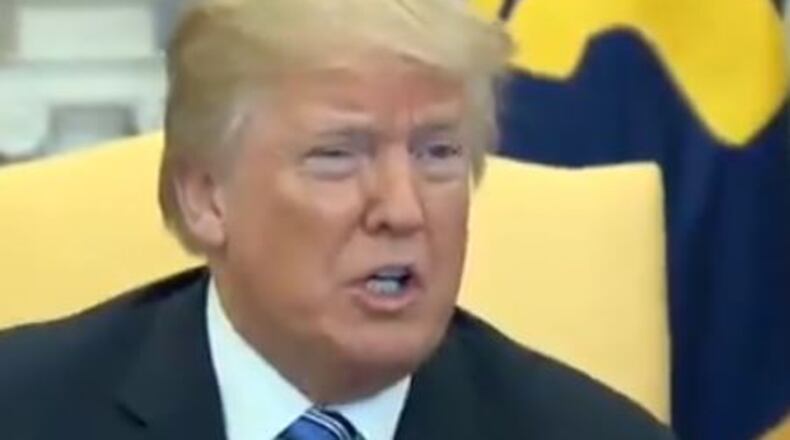Despite increasing opposition from Republicans in the Congress, President Donald Trump said Monday that he would not back off his announcement from last week to slap new tariffs on imported steel and aluminum, as he tied the new import duties to ongoing trade negotiations with Canada and Mexico.
"No, we're not backing down," Mr. Trump said to reporters during an Oval Office photo op with the leader of Israel, saying the U.S. has been "ripped off" by other countries when it comes to trade.
"Our factories have left our country, our jobs have left our country," the President said, labeling the NAFTA trade agreement with Mexico and Canada a "disaster."
"We had a very bad deal with Mexico, we had a very bad deal with Canada," as the President again threatened to terminate the NAFTA trade agreement, saying that steel and aluminum coming into the U.S. from those two countries won't be exempted from the new tariffs.
"So, we'll see what happens," Mr. Trump added.
"People have to understand, our country on trade has been ripped off by virtually every country in the world, whether it's friend or enemy," the President said. "Everybody."
Mr. Trump again said that if European nations go ahead with their own retaliatory trade measures, then he would move to place new tariffs on their exports to the U.S. in response.
"If they want to do something, we'll just tax their cars, which they send in here like water," he added.
On Capitol Hill, GOP leaders made very clear today that they are not behind the President on the issue of new tariffs, with the clearest message coming from House Speaker Paul Ryan.
A top aide to Ryan sent an early morning email to the press from a CNBC story with the headline, "Dow opens more than 100 points lower as trade war fears rattle investors."
"We are extremely worried about the consequences of a trade war," said a spokesman for Speaker Ryan.
The President brushed off such talk.
"I don't think you're going to have a trade war," the President said today.
Trade was clearly on the President's mind when he got up this morning, as he started his day pressing that point on Twitter.
Some Republicans openly expressed concern about the President's abilities to press ahead with new tariffs.
"In a government system with checks and balances, the President should not have the power to unilaterally levy or alter tariffs," said Sen. Mike Lee (R-UT), who has a bill that would involve the Congress more in that process.
But for now, Mr. Trump is the one driving that issue, with the Congress waiting to see what's next.
About the Author
The Latest
Featured



